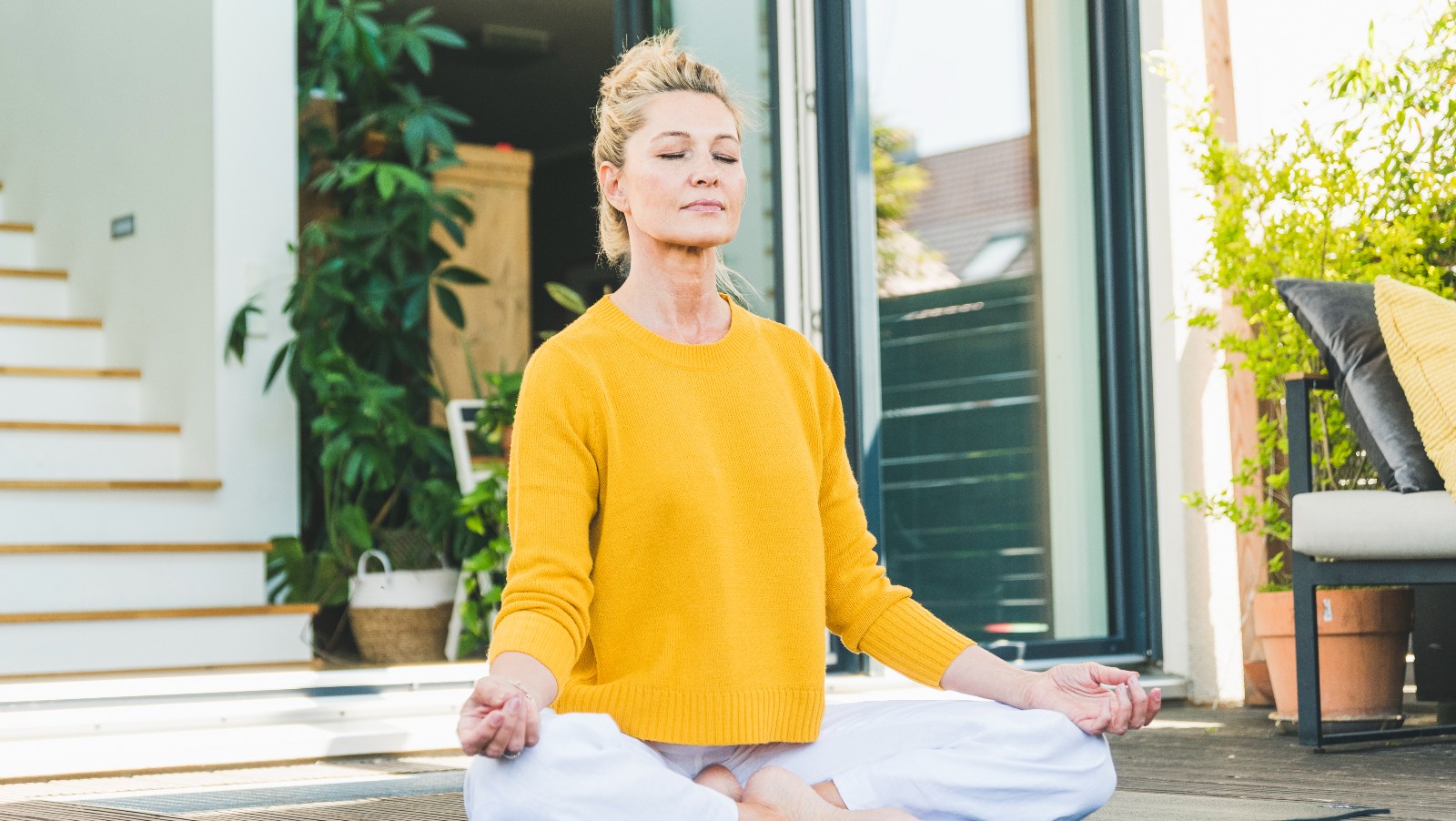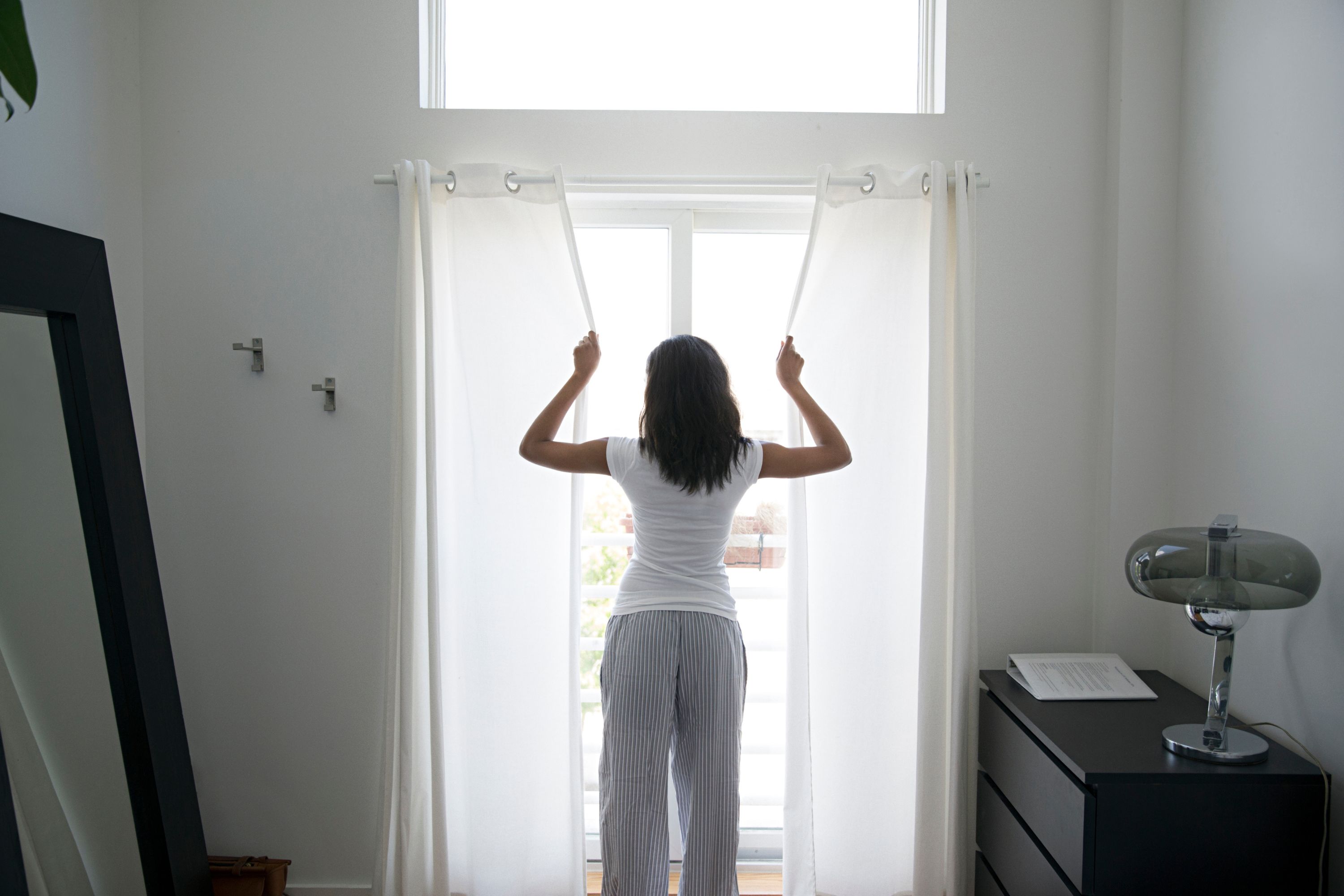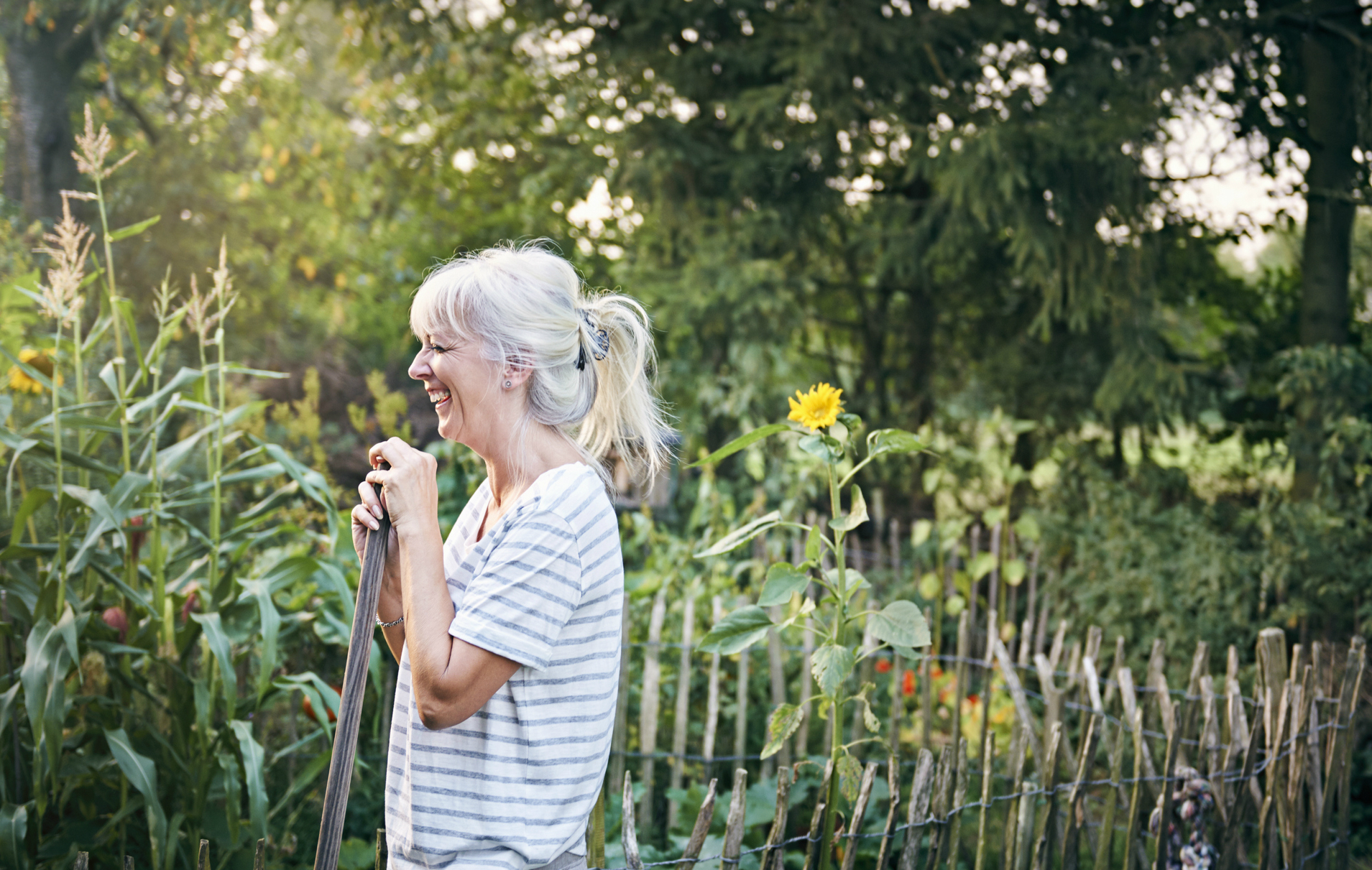30 of the best self-care ideas to boost your health and manage stress – and they’re all free
Busy putting the family first? Give yourself a lift with these tried-and-tested self-care ideas


We all deal with multiple stressors every day – whether it's the kids, work or the cost-of-living crisis – or, indeed, all three – and many more, so finding self-care ideas is unsurprisingly on all of our minds. But, you don't need to spend money to feel better – in fact, there are a whole host of natural anxiety remedies, and spending money you might not have, is only going to lead to more signs of stress, and anxiety in the long run.
'Natural mood boosters help boost a range of feel-good hormones, such as dopamine, serotonin, endorphins, and oxytocin,' says Dr Marianne Trent, clinical psychologist and creator of The Feel Better Academy. 'They also work really well for habit-sticking. For example, if you're already taking the bus, you can get off a few stops early and walk through nature to get to your destination.'
Here, we've explored the best self-care ideas and how to boost serotonin naturally, and why they work.
30 self-care ideas
1. Get outside
Yes, self-care can be as easy as opening your front door and getting some fresh air. 'Going outside, especially into nature can allow us to use more of our five senses and to de-stress,' says Dr Trent. 'Having regular time outside has been shown to improve concentration and to improve some measures of physical and mental health too.' The NHS recommends you do at least 150 minutes of moderate-intensity activity a week or 75 minutes of vigorous-intensity activity a week. Exercising just once or twice a week can help reduce your risk of heart disease and stroke.

2. Listen to relaxing sounds
Too stressed to sleep? White noise can help. 'This is due to its ability to mask or drown out other disruptive sounds that may hinder relaxation and sleep,' says Martin Seeley, sleep expert and CEO of MattressNextDay. 'Consisting of a blend of all audible frequencies at equal intensity, white noise creates a steady, soothing background sound that effectively muffles sudden noises and disturbances, such as traffic, snoring, or barking dogs.'
By providing a constant and consistent auditory stimulus, white noise helps to create a more predictable and calming environment, promoting relaxation and reducing the likelihood of being startled awake. 'The gentle and monotonous nature of white noise also helps to divert attention away from racing thoughts and mental distractions, allowing individuals to enter a state of tranquillity conducive to falling asleep faster and achieving a more restful slumber,' he adds.
3. Boost your diet
You are what you eat, as the saying goes. And there are certain foods that can have a big impact on your mood. Nutrition expert, Penny Weston, suggests adding these nutritious foods to your plate to perk you up and boost your overall health:
Parenting advice, hot topics, best buys and family finance tips delivered straight to your inbox.
- ‘Nuts and seeds are great mood boosters to include in a salad, and can also add a nice crunch to the meal. Nuts and seeds are high in fibre and healthy fats, as well as being a good source of plant-based protein. Nuts and seeds can improve your mood as they contain an amino acid called tryptophan, which produces serotonin – our body’s ‘feel good’ chemical.’'
- ‘Beans and lentils are high in fibre. Fibre can take longer to pass through the body so will spend more time soaking up excess sugars. This is a great natural way to maintain our blood sugar levels, as we know that this can have a huge impact on our moods. I love adding kidney beans to my salads’
- ‘Red bell peppers are filled with vitamin C, and actually contain more vitamin C than an orange! Vitamin C is important for helping our neurotransmitters function. Red bell peppers are also high in vitamin B6, which helps our body produce serotonin. An added bonus of bell peppers is that they are great for our skin and immune system.’
- ‘Avocados contain something called folate, and studies have proven that a lack of folate can cause anxiety. I love to add a squeeze of lime to my avocado to bring out the flavour!’
4. Hug yourself
'Hugging someone you like for at least 20 seconds or more can trigger the release of oxytocin – one of our happy hormones to flow,' says Dr Trent. 'Oxytocin is a bonding hormone and is also released with other forms of physical and feel good bonding activities touch such as massage /stroking, breastfeeding and sexual activity.' No one to cuddle? Hugging yourself has the same benefits. You can also try self-massage. Treat yourself to a lovely scented lotion and massage your own hands and feet.
5. Volunteer
The selfless act of helping others can give what scientists call a "helper's high" – these are the positive emotions we experience after using our time and skills to help those in need. This includes oxytocin and dopamine.
One study published in the British Medical Journals (BMJ) found that those who volunteered regularly appeared to experience higher levels of mental well-being than those who never volunteered. However, those in their forties and beyond seemed to reap the most benefits.
6. Stroke a pet
Petting and playing with your furry friend can help reduce stress-related hormones, such as cortisol and boost levels of serotonin and dopamine – hormones that calm the nervous system.
This is supported by a study published in Frontiers in Psychology which found that interactions with a pet – especially a dog – increase oxytocin levels in the brain and help to reduce stress and anxiety.
7. Stay hydrated
Simply getting your NHS recommended six to eight 200m glasses of fluid a day can have a big impact on your wellbeing. Research published in The World Journal of Psychiatry found that drinking plain water was linked to reduced risk of depression and anxiety in adults.
‘This includes water found in food as well as milk, juices, tea and coffee. However, there are times when we will need more water than this,' says Penny. 'For example, we will need more water when we exercise – when you move, the more liquid you will lose through sweating so make sure you rehydrate after a workout.'
Also, women who are pregnant or breastfeeding need to drink more water because the body is working so hard to produce extra blood, tissue and amniotic fluid or to produce breast milk, which is mostly water, adds Penny.
8. Appreciate the stars
Feelings of awe from stargazing – known as skychology – can help trigger the release of serotonin and dopamine. A study by Coventry University found that the act of looking up promotes feelings of fascination, transcendence and feeling connected to others.
‘Stargazing allows us to connect with something greater than ourselves,’ says consultant psychologist Dr Elena Touroni. ‘This can be very beneficial for those with depression, where there tends to be more focus on the self.'
9. Go off grid
'Setting limits and boundaries around when we will or won’t respond to messages on our phones can allow us to prioritise our own self-care, sleep and time with our families,' says Dr Trent. 'This can allow people to feel calmer and to be less likely to have feelings of hyper-alertness ‘just in case’ someone rings or texts.' Getting a separate work mobile you switch off as soon as you finish work, and placing limits on your personal phone use can be helpful.

10. Do a jigsaw
Getting stuck into a puzzle can do wonders for your brain health and your mood. In fact, research published in the journal Frontiers in Aging Neuroscience found that those who do jigsaws long-term improved a variety of cognitive abilities, such as flexibility, speed and reasoning.
11. Chew gum
A study published in the Journal of Healthcare Engineering found that chewing gum can reduce self-reported stress and anxiety, as well as improve alertness.
A further study by Cardiff University found that students chewing two pieces of gum for just 20 minutes a day helped to reduce their stress levels.

12. Prioritise sleep
Sleep plays a vital role in regulating our emotions and overall mental well-being. 'When we experience consistent, high-quality sleep, our brains have the opportunity to restore and reset, which contributes to improved emotional resilience and a more balanced mood,' says Martin. 'On the other hand, inadequate or disrupted sleep can lead to irritability, mood swings, and an increased susceptibility to stress.'
Lack of sleep affects the brain's ability to regulate emotions effectively, making individuals more prone to negative emotional states, such as sadness, anxiety, and frustration, adds Martin. Therefore, prioritising and consistently achieving restful sleep is essential for promoting a healthy and positive mood.
13. Make time for fun
With a never-ending to-do list, it can be easy to forget to schedule fun into your day. But even if it's dancing along to the radio while making breakfast, having a quick kick around with your kids or listening to a comedy podcast, small things can have a big impact on your mood.
14. Put the kettle on
A review commissioned by the Tea Advisory Panel (TAP) found that drinking two cups of regular black tea, green tea, German Chamomile, Lavender, Rose, Jasmine or Passionflower can improve poor sleeping habits and help cut stress.
'The active compounds L-theanine, an amino acid, and GABA, which are found in tea, have direct effects on the brain, helping to activate pathways that lower stress and create calm and relaxation. Tea is the main natural source of L-theanine in our diet,' says author of the study, and a member of TAP, Dr Tim Bond.
15. Stretch
Stretching can help help increase serotonin levels – which help stabilise our mood, reduce stress levels and boost our overall well-being, helping to decrease anxiety and depression.
Try this routine:
- 10 forward shoulder rolls
- 10 backward rolls
- 15 squats – feet hip-width apart, bend your knees and lower your bottom, raising your arms out in front of you
- 30 knee lifts – bring your knee up in front and touch it with your opposite hand
- 30 heel taps – putting alternative knees in front.
16. Practice gratitude
Research published in the Journal of Happiness Studies , found that gratitude was more beneficial for mood than other forms of expressive writing in particularly stressful times.
It might be difficult to stick to at first, but practice is key. 'Like any parts of our body if we don’t use aspects for a while, they can become under-developed,' says Dr Trent. 'When we regularly become aware of and practice gratitude – for example by using a journal, we can strengthen the neural pathways in our brain which make it easier for us to do this in future,’ says Dr Marianne Trent.
Aim to write down three things you're grateful for each day – no matter how big or small. For example, the sun shining, your first sip of coffee in the morning, or an unexpected visit from a friend.

17. Meditate
Meditation is the art of focusing your mind on the present the moment. A study published in the journal Brain, Behaviour and Immunity, found that practicing for eight weeks reduced the inflammation response to stress.
Over time, inflammation can lead to diseases such as lupus, fibromyalgia and multiple sclerosis.
19. Eat dark chocolate
‘Dark chocolate is rich in iron and magnesium. Magnesium is really helpful for mood-boosting because it helps regulate serotonin levels,' says Penny. A study published in Nutrients even found this tasty treat can help improve memory – particularly verbal recall.
'However, there can definitely be too much of a good thing, so I would recommend no more than 30-60 grams of dark chocolate a day,' says Penny. And make sure it's at least 70% cocoa to reap the benefits.
‘Dark chocolate is quite bitter so it definitely is not for everyone, but I think it goes nicely with fruit. I like to put mine with mango as the sweetness of the fruit goes really well!' says Penny.
20. Smile
Even if you don't feel like it – smiling can lift your mood, lower stress and boost your immune system.
This is because it releases molecules called neuropeptides which help fight stress. Those feel-good hormones dopamine and endorphins get released too which can help reduce pain and make you feel happier.
21. De-clutter
You've more than likely heard of 'tidy home, tidy mind' – and according to research in Current Psychology – it's true! When looking at people who had a lot of "stuff" they were unable to focus on the task at hand, and more likely to procrastinate. They were also more likely to experience feelings of overwhelm, negative emotions, and disruption to their social lives, than those living in a clutter-free space.

22. Let the sun in
No matter the time of year – getting your fix of daylight is important for raising your serotonin levels. It's also important for regulating your sleep-wake cycle, meaning you'll be ready for sleep 16-18 hours earlier.
23. Fill up on omega-3
Omega-3 fatty acids are a type of polyunsaturated fat often referred to as “essential’’ – the body can’t make them, so they need to be obtained from the diet. 'Foods such as salmon and tuna are great sources of omega-3 fatty acids, as well as flaxseeds, walnuts, eggs, and yogurts,' says Penny.
Research by King's College London found that omega-3 can help reduce symptoms of patients diagnosed with depression. Results showed that when omega-3 is given to patients with depression, they are metabolised into molecules called lipid mediators. The levels of these in the blood are linked to an improvement in symptoms.

24. Admire flowers
Whether you see them on a walk or a loved-one treats you to a bouquet, research from The State University of New Jersey found that flowers trigger happy emotions and are linked to life satisfaction. Display them in a communal area of your home to spread the joy!
25. Have a spritz
Our sense of smell is linked to parts of the limbic system in the brain which process emotions and learning. Citrus scents can help boost our mood and our energy levels – such as lemon and grapefruit. This is thanks to their light fragrance which reminds us of summer. Want to relax? Try soothing lavender or rosemary.
26. Cut down on booze
While you might be tempted to reach for a glass of wine at the end of an exhausting week, it might actually do you more harm than good.
'In the short-term, alcohol can cause dehydration, sickness, and impair mood and libido,' says Penny. Yes – short term, that gin and tonic can provide feelings of relaxation and help us feel more confident, but Penny points out that when this wears off the chemical changes in our brain can cause us to feel anger, depression or anxiety.
Penny suggests opting for a yoga or meditation to help soothe you instead. Not only will they instantly make you feel better, but they are more beneficial long-term, for the body and mind.’

27. Get intimate
During sex, the body releases endorphins, which improve your mood, beat stress levels and boost self-esteem. According to American scientist Dr Debby Herbenick, couples who have sex first thing in the morning are more upbeat for the rest of the day.
28. Go barefoot
Also known as "grounding" – walking barefoot in nature can help improve sleep and reduce pain according to research published in The Journal of Environmental Public Health.Grounding works by enabling our body to absorb free irons from the earth which act as antioxidants.
Other benefits include elevated mood, reduced inflammation in the body, and improved blood flow.

29. Do a spot of gardening
You don't need to be a seasoned gardener to enjoy the benefits. Research by the University of Florida found that gardening activities lowered stress, anxiety and depression in healthy women who attended fortnightly gardening classes.
30. Phone a friend
Just one daily phone call with a friend can make you feel happier and less stressed by the end of the day, says a study by Kansas University. in America. And don't worry if you don't have anything exciting to say – the very act of calling a friend still has a big impact. This can help reduce feelings of loneliness, anxiety and depression.
Looking for more ways to take care of yourself? Take a look at our article on I can't sleep! 15 easy ways to fall asleep fast.

Dr Marianne Trent is a Clinical Psychologist, founder of Good Thinking Psychological Services and author of The Grief Collective. She has worked in mental health across the lifespan for the last 19 years.

Penny is a fitness, wellness and nutrition expert, and the director of Moddershall Oaks Country Spa Retreat and founder of MADE, a 360 degree wellness centre. She is accredited by the Royal Society for Public Health (RSPH) and certified by the Association for Nutrition (AfN).

Having established and managed multiple bed stores throughout the South East in the 1980s, Martin has a long history in the mattress and bed industry. In the early 2000s, Martin and his Dad branched out into online bed retail, where MattressNextDay was born. When his Dad retired, Martin took over as CEO, overseeing and expanding the business in areas such as brand development, website traffic growth, and importantly building strong relationships with suppliers to ensure that customers get the best quality and price.
Video of the week
Rose Goodman joined Future Publishing in 2020 and writes across Goodto.com, Woman & Home, Woman, Chat and Woman’s Own magazines. Prior to pursuing her career as a writer, Rose obtained a degree in psychology and went on to work in adult mental health for five years at Addenbrooke’s Hospital, Cambridge, specialising in eating disorders. She is fully trained in first aid, medical emergency response and motivational interviewing – a directive, patient-style counselling approach to address ambivalence in recovery. She graduated with a MA in creative writing from the University of Brighton in 2017. In her spare time she enjoys writing poetry and attending literary events, and offers weekly support to those living with homelessness. Rose has a passion for raising awareness around mental illness and the importance of prioritising our wellbeing.
